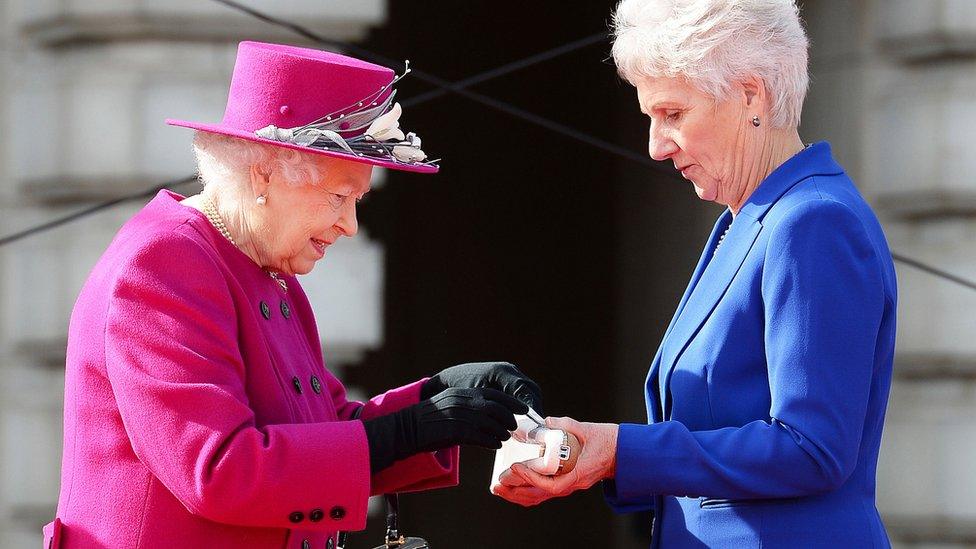Commonwealth Games 2022: Queen's baton to travel 90,000 miles around the world
- Published
- comments

This year's baton is high-tech and is home to a camera, a heart-rate monitor, atmospheric sensors and LED lighting. The technologies were designed by BOM (Birmingham Open Media)
The 2022 Commonwealth Games will take place in Birmingham and the Games baton will begin it's 90,000 mile journey around the globe in October.
But the baton itself is more than it first appears!
The traditional relay will start on Thursday, 7 October in London, where the Queen will place a written message inside the baton at Buckingham Palace.
Over the course of the next 294 days, it will be passed around the 72 nations and territories of the Commonwealth before ending in Birmingham where the Games will take place.

As the head of the Commonwealth, the Queen will place a message inside the baton before it starts it's journey, much like she did before the 2018 Games.
It has an exciting journey ahead of it, passing through some beautiful and tropical locations.
It is scheduled to begin its journey in Cyprus, spending Christmas Eve in the Seychelles, New Year in the Maldives and Easter weekend in Jamaica.
The final person in the baton relay will return it back to the Queen at the Games opening ceremony.
7,500 baton bearers will carry the ceremonial staff, with people being chosen for their contribution to sport in the local community.
The high-tech baton will read the air quality in each location

The baton will contain the Queen's message to the Commonwealth
The baton features a platinum strand along its length to mark the Queen's Platinum Jubilee year in 2022.
Inside the baton itself is a 360-degree camera to record and transmit stories from across the Commonwealth, and atmospheric sensors to analyse each country's environmental conditions.
The information collected from the sensors will be analysed by researchers at the University of Birmingham who will study air pollution in each Commonwealth country.
A heart rate monitor will display the heartbeats of the carriers, and LED lights will change colour when two people hold it together.
- Published29 September 2021

- Published29 September 2021

